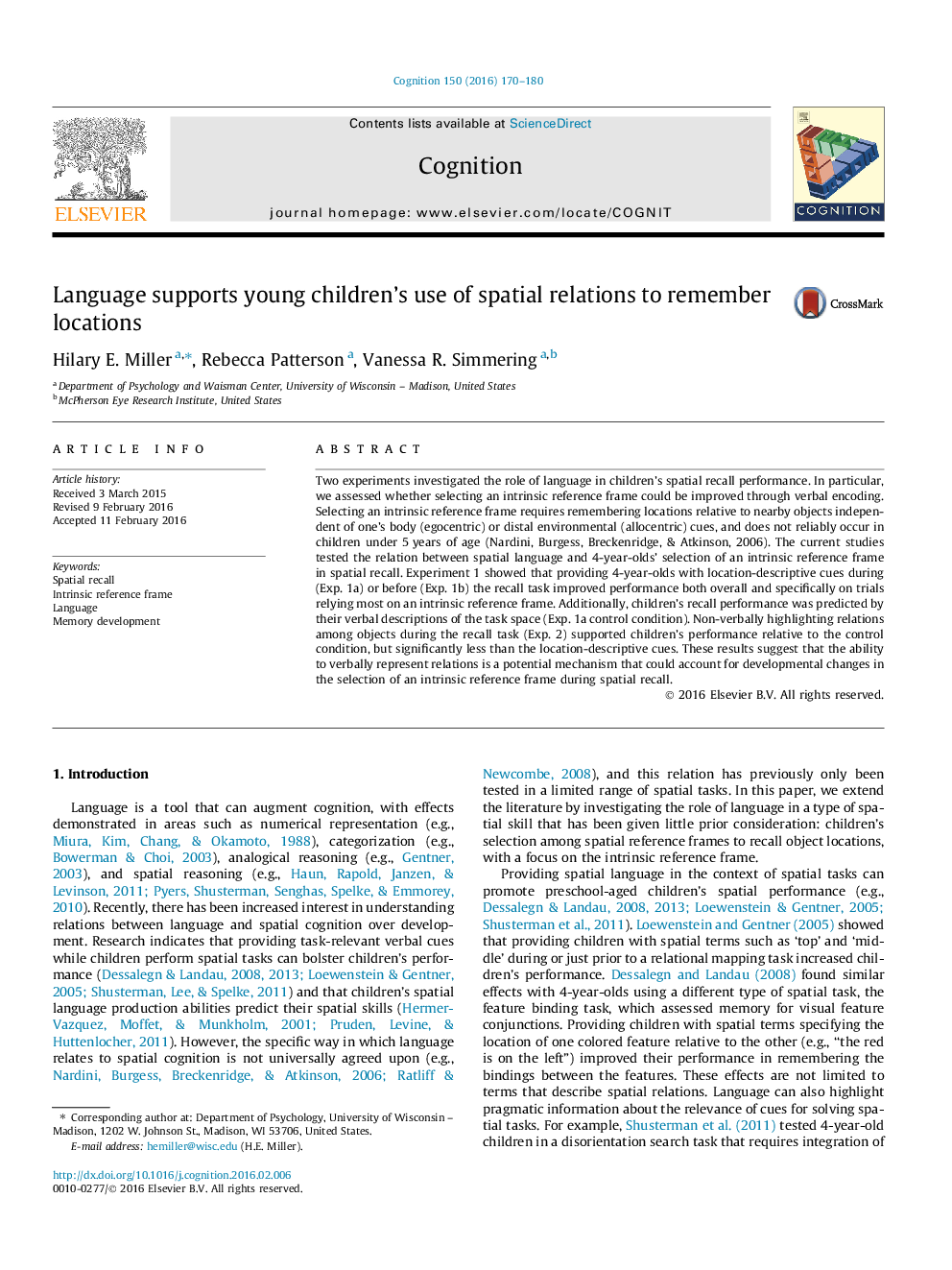| Article ID | Journal | Published Year | Pages | File Type |
|---|---|---|---|---|
| 7286254 | Cognition | 2016 | 11 Pages |
Abstract
Two experiments investigated the role of language in children's spatial recall performance. In particular, we assessed whether selecting an intrinsic reference frame could be improved through verbal encoding. Selecting an intrinsic reference frame requires remembering locations relative to nearby objects independent of one's body (egocentric) or distal environmental (allocentric) cues, and does not reliably occur in children under 5Â years of age (Nardini, Burgess, Breckenridge, & Atkinson, 2006). The current studies tested the relation between spatial language and 4-year-olds' selection of an intrinsic reference frame in spatial recall. Experiment 1 showed that providing 4-year-olds with location-descriptive cues during (Exp. 1a) or before (Exp. 1b) the recall task improved performance both overall and specifically on trials relying most on an intrinsic reference frame. Additionally, children's recall performance was predicted by their verbal descriptions of the task space (Exp. 1a control condition). Non-verbally highlighting relations among objects during the recall task (Exp. 2) supported children's performance relative to the control condition, but significantly less than the location-descriptive cues. These results suggest that the ability to verbally represent relations is a potential mechanism that could account for developmental changes in the selection of an intrinsic reference frame during spatial recall.
Keywords
Related Topics
Life Sciences
Neuroscience
Cognitive Neuroscience
Authors
Hilary E. Miller, Rebecca Patterson, Vanessa R. Simmering,
